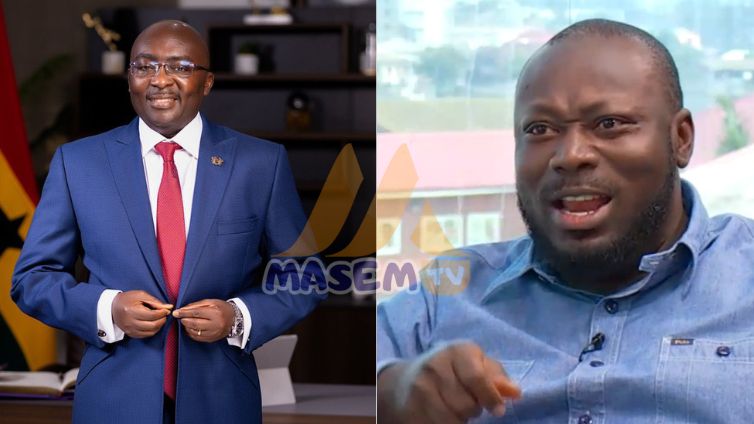In a tweet that sparked controversy and heated discussions across political circles, Pablo, the National Youth Organizer of the National Democratic Congress (NDC), raised serious questions about the role and competence of Vice President Dr. Mahamudu Bawumia. The tweet suggested that Dr. Bawumia was taking credit for positive initiatives while simultaneously being hindered from functioning effectively. This has fueled a narrative that supporting Bawumia is akin to a third-term endorsement for President Akufo-Addo. As political tensions rise, the accusations of confusion, incompetence, and double-talk are becoming central to the discourse surrounding the outgoing vice president.
Conflicting Narratives:
The tweet by Pablo reflects the growing tension within the political landscape, with Bawumia’s supporters and critics presenting conflicting narratives. While Dr. Bawumia has been vocal about the achievements of the government, especially in the areas of economic policy and digital transformation, the opposition seems to be pointing fingers at him for alleged ineffectiveness and confusion within the administration.
Allegations of Hindered Functionality:
The accusation that Dr. Bawumia wasn’t allowed to function as the vice president raises questions about the internal dynamics within the ruling party. Supporters of Bawumia argue that he has been a driving force behind various initiatives, but the tweet suggests a different perspective, alleging that he faced obstacles in executing his duties. The extent to which these alleged hindrances impacted the effectiveness of his role remains a matter of debate.
Dr Bawumia is taking credit for all the so-called ‘good initiatives’ yet his followers say he wasn’t allowed to function! Such confusion! Away! Everything shows a vote for Bawumia is a third-term vote for Akufo Addo. Confused, incompetent, double-tongued…what else can be used…
— Pablo ✌️ (@georgeoaddo) February 7, 2024
A Third-Term Proxy?
The tweet also introduces the notion that a vote for Bawumia could be perceived as a de facto third term for President Akufo-Addo. This assertion implies a continuity of policies and leadership style, raising concerns about whether the vice president would bring a fresh perspective or represent a continuation of the current administration’s approach.
Confusion, Incompetence, Double-Talk: A Damaging Narrative?
Pablo’s choice of words, labeling the outgoing vice president as “confused, incompetent, and double-tongued,” paints a negative image that may have ramifications for Dr. Bawumia’s political standing. Accusations of confusion and double-talk can be particularly damaging in a political context, as they undermine the trust and credibility that leaders need to maintain.
Conclusion:
As the political climate intensifies, these allegations against Vice President Bawumia raise important questions about leadership, functionality, and the narratives surrounding political figures. The public discourse will undoubtedly continue to evolve, with supporters and critics engaging in a tug-of-war over the legacy and competence of the outgoing vice president. As the political landscape continues to shift, the implications of these accusations could have lasting effects on public perceptions and the upcoming political landscape in Ghana.

